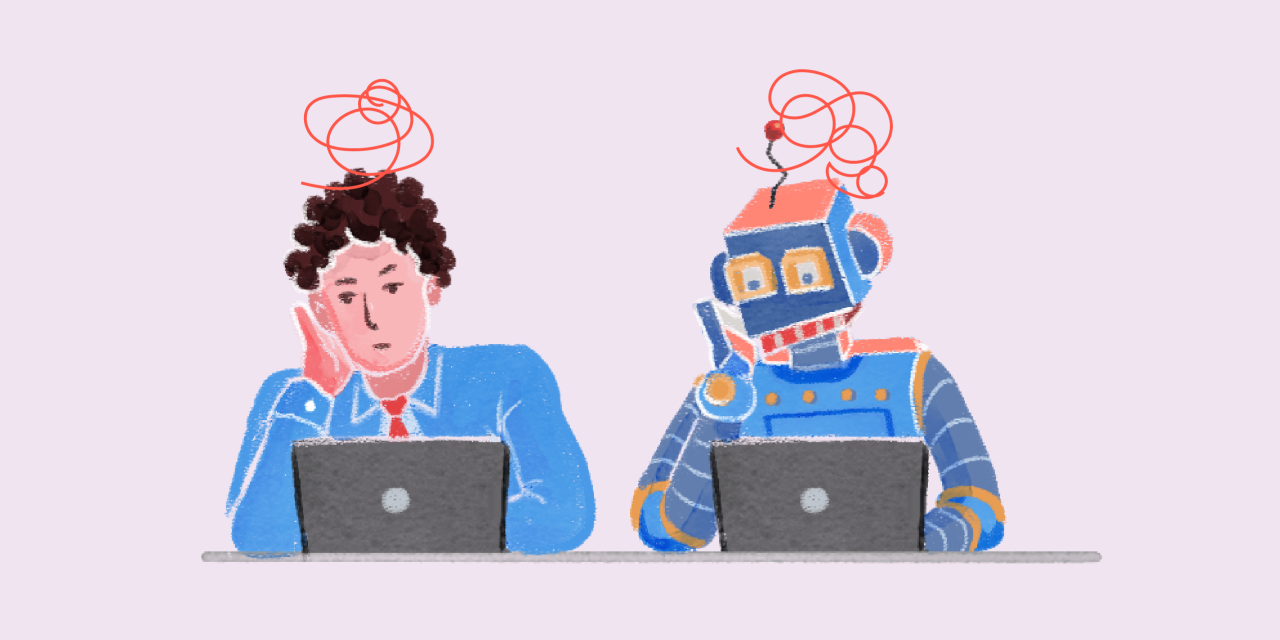‘Higher risk of uniformity’: Confessions of a senior developer on using generative AI at work

ChatGPT has shaken most industries since its widespread launch late last year. It’s transforming the education and legal worlds, while media and tech industries are grappling with the enormous copyright infringement can of worms it has opened up.
For the latest Confessions installment, in which we trade anonymity for candor, we spoke to a senior tech developer whose clients include global sports retailers, about the bittersweet ramifications that generative AI will have on the developer community.
This interview has been edited and condensed for clarity.
How much is your company using AI?
I’d say we use it for roughly 40% of what we do now. A lot of it is low-level tasks that are very boring. It helps write all the basic logic, or all the more mundane steps you have to take a lot of the time — copying things [code] from here to there, reorganizing them and moving them around until you figure out more meaningful places for it, and ultimately improve the end result. So it saves us a lot of time on these kind of boring programmer tasks.
What worries you most about how it’s being embedded?
What worries me is that a lot of it is, at least up until now, proprietary. And now it’s exposed to a platform. And also it learns, maybe even like specifically, what you personally do. So now it does all the boring tasks. But then it might do a little bit more and a bit more, until you know, you end up doing even less.
But also, different companies like to hire people because they have particular skills or talents. And now that is the value of the company — the people they have in. But when that’s transferred to an algorithm and database, it’s transferred to another company. So if you’re using the current platform GPT, or OpenAI, we’re teaching the system how to do our job. And it’s not just a company trying to teach the system — it’s learning from everyone. So it’s learning really fast as well.
There’s a lot of talk about how AI can be used to assist us in our work, not replace us. Do you worry though that it will eventually make you obsolete?
That’s almost certain. In the best case scenario, it will just change it [the job] entirely. But a lot of jobs will will be eliminated. Some researchers say that it will create more jobs than it will eliminate. Sure, maybe. But it will definitely eliminate jobs.
It’s going to be a big transition, some people will pick it up more easily and change how they work, for others, it takes a lot more effort, and some will not be able to do that at all. How you program evolves in many ways already. Even in my time I’ve changed technologies entirely that I’ve been working on twice, within 15 years. And it’s a complete shift, with new [coding] languages, new systems — everything goes and we never touch them again. It’s not a transition, it’s gone, never to be used again. That’s happened twice, the third time may be more difficult.
Do you think your company over-relies on it?
Not currently, we do have human developers check everything it does. But if it was to do 80%, and you rely on it a lot more then it will become a bigger danger. There is also some sort of incest problem within AI, because it’s learning out of itself. It produces bad results, because it’s learning out of AI generated content. So the more it’s learning from itself, it kind of loses its quality. We’re still in the phase where it feels useful. There is no over-reliance yet, but that’s how you build reliance, by needing your system more and more.
What’s your biggest frustration with how fast generative AI has been adopted?
My role is like a mix of technology and creative, so the intersection of design and technology. And there is an increasing adoption of AI on design, which creates a higher risk of uniformity. Essentially an identity [of design work created by an individual] belongs to the technology company rather than the designer or creative. And I think that’s missing the soul of design.
In design software, they are starting to generate mock ups and even complete designs, just through prompts. But that feels like an area where soul, or the aesthetic — the personal aspect of it still matters more. Like writing an article — what matters is the writer’s identity and their specific voice. But this [copyright ownership and] is all getting transferred to the tech company. So maybe if you can you have enough money, you can buy access to that company that can give you your voice back. Like, an identity is not an individual now it’s owned by a company, and it depends on whether you have access to that company now.
